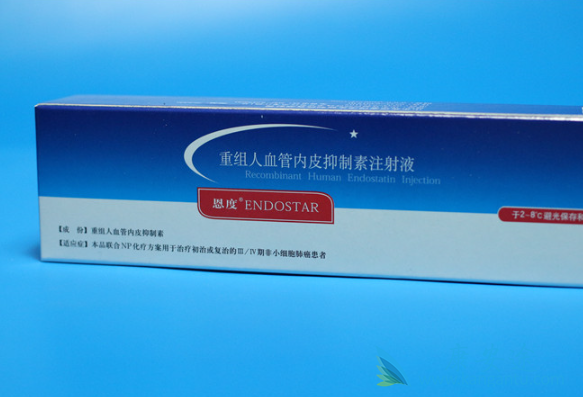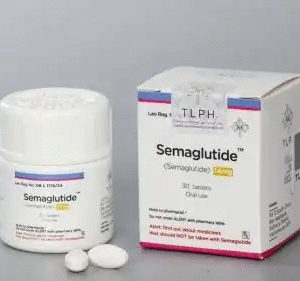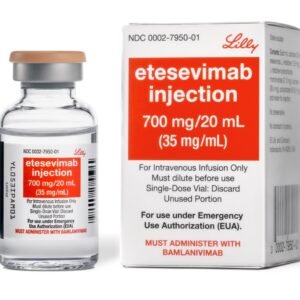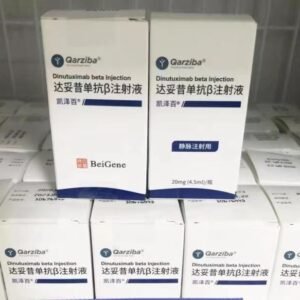Recombinant Human Endostatin Injection.
Effects and efficacy: This product is used in combination with NP chemotherapy (vinorelbine tartrate and cisplatin) to treat patients with stage III/IV non-small cell lung cancer who are receiving initial or retreatment treatment.
Usage and dosage: This product is administered intravenously. When used, add this product to 500 ml of normal saline and drip it intravenously at a uniform rate for 3-4 hours. When administered in combination with NP chemotherapy, this product is administered once a day on the 1st to 14th day of the treatment cycle, 7.5 mg/m2 (1.2×105U/m2) each time, for 14 consecutive days, and then rest for one week before continuing the next cycle of treatment. Usually 2-4 cycles of treatment can be performed. Clinically, physicians recommend that the use of this product can be appropriately extended if the patient can tolerate it. Note that ECG monitoring should be performed regularly during the clinical use of this product, and ECG monitoring should be performed for patients with adverse cardiac reactions.
Adverse reactions: Common adverse drug reactions mainly include cardiac adverse reactions, rare digestive system reactions, and allergic reactions to the skin and appendages. In the early stage of cardiac reaction medication, a small number of patients may experience mild fatigue, chest tightness, and palpitations. Most adverse reactions can be improved after symptomatic treatment and will not affect continued medication. In very rare cases, medication was discontinued due to the persistence of the above symptoms. Patients with adverse cardiac reactions mainly showed myocardial ischemia within 2-7 days after medication. All adverse cardiac reactions were grade I, II or mild or moderate adverse reactions, which did not endanger the patient’s life. Among them, 6.4‰ of patients had obvious symptoms, but they were all reversible, and most of them did not affect the continued use of this product and could be relieved without symptomatic treatment. Only 2.1‰ of patients stopped treatment due to cardiac reactions. Common symptoms of adverse cardiac reactions include sinus tachycardia, mild ST-T changes, atrioventricular conduction block, atrial premature beats, occasional ventricular premature beats, etc., which are common in patients with a history of coronary heart disease and hypertension. Therefore, in order to ensure patient safety, it is recommended to regularly test the electrocardiogram during clinical application, use electrocardiogram monitoring for patients with adverse cardiac reactions, and use it under the guidance of a doctor for those with a history of severe heart disease that is not under control. Digestive system reactions include occasional diarrhea and abnormal liver function, mainly asymptomatic elevation of transaminase and jaundice, which are mainly mild and moderate, and rarely severe. All these adverse reactions are reversible. Mild patients do not need symptomatic treatment. Moderate and severe cases can be relieved by slowing down the infusion rate or suspending the use of the drug. Only a few cases require symptomatic treatment, but it usually does not affect the continued use of the drug. Skin and appendage reactions Allergic reactions manifest as maculopapular rash with itching. This adverse reaction is reversible and can be relieved after suspending the use of the drug. Fever and fatigue are mostly mild to moderate.
Drug contraindications:
Allergic to this product is prohibited during pregnancy. It is prohibited for use in patients with renal impairment. It should be used with caution in children. It should be used with caution during lactation.
Share:
Products
Our offers
Health Classification
Let us work together to protect precious health






























